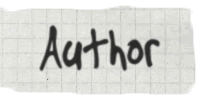x
Osfer Pronunciation & Grammar
Pronunciation
-Each letter or set of letters represent one separate Osfer sound.
-The following list is placed in order of the English alphabet for easier research.
-There are no interchangeable letter sounds. --such as the English "c" (cake/celery) or hard/soft pronunciations for the same letter such as the English "g" (girl/gentle)--
a As in: Amazoi (short 'a')
b As in: bread
d As in: bid
e As in: end (short 'e')
f As in: far
g As in: guts (hard 'g')
h As in: hard
i As in: sleep ('ee')
j As in: je suis ('jz')
k As in: kid
l As in: luck
m As in: more
n As in: no
o As in: no (hard 'o')
p As in: pin
r Not a clear 'r' as used in North American accent. (muddled / soft roll)
s As in: see
sh As in: ship
t As in: top
th As in: this
u As in: Winnie the Pooh ('oo')
v As in: victor
w As in: win
y As in: yip
ay As in: play
z As in: zoo (hard 'z')
Note::
- i: Used to indicate 'ee' sound. Double 'ee' is used when the correct spelling (ie.id) proves too confusing.
- ayt (go): Sounds more like 'ai-eet' when spoken with urgency.
- tuh (curse/spit): is more a simple "T" sound accompanied by a mimic of spitting.
- u: Used to indicate 'oo' sound. 'Sun' is pronounced 'soon', not like 'sunshine'.
Special Mention:
- Trying to pronounce the Amazoi 'R' sound in a North American accent will make creating fluent sentences almost impossible.
If you can't "roll an R", try a sound between a soft 'D' and and 'L' instead.
(tayn-ra would be closer to tayn-la in sound)
- The 'y' is an important indicator. (Such as the difference between dayt and Daela.
dayt is similar to English 'date'. While Daela is pronounced with 3 syllables: da-e-la)
- Words with double consonants have all been shortened to one letter. (Such as: Tranoi)
- Words are hyphenated to properly distinguish between individual words but are not to be read separately, especially words that use two hard consonants such as uber-ra (problems) are pronounced as one word, with one 'r' (as in: ubera)
(Don't make the common mistake most second-language students make)
Don't recite one word at a time.
No language (that I know of ) Talks. Like. This. All. The. Time.
Just as you speak in smooth sentences, so did the Amazoi of old.
The 'r' can be dropped or softened when necessary:
Just as we drop sounds in the various accents of the English language ( I pronounce mountains: mou'ns, comfortable: comf'trble and don't clearly articulate my 'T's), so it was with the speakers of Osfer.
The 'R' sound in Osfer is the most difficult to pronounce in sentences and needs to be 'adjusted' accordingly.
For example:
li-ra nay fer ther day-ra (the gods cannot manipulate us) will 'bunch up' at the fer ther part, and would most likely be pronounced as: li-ra nay fe'the' day-ra.
Difference in Accent:
On several occasions, the STORYTELLERS mentioned there was a difference in pronunciation of Osfer even within the small tribe of under 200 people.
This is attributed to the absorption of freed slaves from assorted tribes.
Basic Grammar
One must keep in mind that the Amazoi had few grammatical rules.
Nor did they seem to feel the need to be consistent in grammatical structure.
If the main purpose to communicate one's feelings was met, then the order the words were placed in was of little importance.
That said, it was mentioned in the scrolls of how, like in most cultures, parents would scold their children for using improper words towards their elders.
Tenses
bo (past tense indicator) --pronounced like: bow-- as in 'bow & arrows'
no (present tense indicator) --pronounced like: no-- as in 'No, thank you'
to (future tense indicator) --pronounced like: toe-- as in 'stub your toe'
- Tenses are used as suffixes and can be used behind both verbs or nouns.
taysha-bo = "Taysha did." or "Taysha was."
day na-no = "(It's) mine." (literally: "now my possession")
ayt-to = "(I/You/She) will go."
Note of Interest: the word for eternity, unmeasurable or forever is bonoto,
which is a combination of past-present-future tenses.
Subject
- Osfer is similar to languages such as Japanese in the way it is not necessary to verbally indicate what is considered obvious in both tense and subject.
In English we can ask:
"Hungry?" to mean "Are you hungry?", but suddenly saying "Hungryyy~" without refering to oneself, makes little sense.
While in Osfer, we can use pika-gu (meaning: empty-stomach) to ask if someone is hungry as well as to indicate that the person speaking is hungry.
In the example above; when addressing an elder or one of higher social status, the informal pika-gu would change to: eed-no pika-gu sa
Meaning: 'you + (present tense) + empty-stomach + (question indicator)'
Notice the tense marker is after eed (you), to indicate it is the person that is now hungry, not the hunger that is present)
Confusing? Sure it is. But you'll catch on.
(See: Indicators)
The / A / Some
In Osfer, there is no need to indicate which apple you are talking about, as far as the unnecessary addition of English the or a/an is concerned.
"Give me apple" is clearly understood the speaker wants one apple from the basket.
If the speaker wants more than one, he/she might say: elday er potha (Give me 2 apple).
't
Close to English: of or related to, this is used at the end of words.
samesh = hungry
samesh't = hunger
samsay = thirsty
samsay't = thirst
This is also used to create a formal or poetic feeling behind a word's usage.
Indicators
- As stated in the Customs and Habits page, the Amazoi take great pride in the ability to control emotions and settle problems with either fist or quiet word. This is made most evident by the use of words to indicate questions and emphasis.
Question Indicator:
- The word sa or sha can be placed at the end of any sentence to turn it into a question.
- Though it is completely unnecessary to use it, it is considered socially polite and helps to lessen mis-communications.
- This is also used as a 'forceful hint or suggestion', to avoid direct conflict.
For Example:
Mother to her child: "mater vas sa" (It's bath time?) gives the unspoken indication the child is to get ready and take a bath. Socially this gives each person the ability to obey commands while knowing they could have done otherwise if desired.
Don't make the common mistake that many second-language students make:
Don't raise your intonation at the end of a question.
I have even heard it taught countless times, by countless 'English Teachers' around the world, and it is the stupidest, bloody thing to do.
If you want to test yourself, try raising the intonation at the end of this question: "What's your name?". You'll quickly notice you cannot raise the end of that question without sounding rather stupid.
If you raised your intonation at the end of each question to me, I would assume that you think I'm senile, retarded or some sort of pet.
Emphatic Indicator:
- The word ser can be placed at the end of any sentence to make it more emphatic.
- Yelling (outside of cheering) is one of the Amazoi's greatest dislikes in other tribes.
Yelling is considered a childish trait. And much like doing things without thought of consequence, it is considered something that every person must grow-out of before gaining the full respect of the tribe. Of course, like every other people on earth, sometimes tempers flare.
Children do not respond to suggestions, lovers quarrel, inappropriate jokes are made. During which the use of ser at the end of a sentence gives clear indication the speaker is one step before moving to the Training Grounds to settle the grievance.
Plural Indicator:
- The plural indicator ra can used at the end of most words but is not mandatory.
For example;
Holding your hand out towards a man sitting at a table of apples and saying elday potha (Give me apple) would be a clear indication you are wanting one apple. Not dozens.
If you're by a fire and want one stick, instead of an armful of fire wood, one can say:
elday tar bota (Give me that stick) while elday bota-ra indicates many sticks.
- ra is necessary in words such as day-ra 'us', eed-ra 'you guys'.
Doubling up words is another way to indicate plural. (Such as ut = eye, ut-ut = eyes)
Here the word ut-ra for eyes would be something like:
"The guy was collecting eyes after the battle".
Doubling up words is common of baby (or lover) talk. It gives an impression of a 'softer' sounding word.
Possessive Indicator:
- The word na is a suffix used to indicated possession.
(day-na = Mine)
- It can be used to indicate responsibility.
(tont touratak-na ray = The Touratak War)
- It can also be used similar to of in titles.
(bakat-na daitan = Daitan of Torik)
Feminine Indicator:
- The word a can be placed at the end of a word to indicate 'female'.
(droi-a = a doe. female deer) (noi-a = female wolf)
This is most common for names of Amazoi women
- It can also indicate a culturally accepted 'femininized' image.
(vlo = river) to (vlo-a = stream)
(goth = humour) to (goth-a = clever or subtle humour)
- It can also add deeper meaning to an established word.
(fort = wise) to (fort-a = cunning)
Students who have studied French will also be please to find there is no established rule of when you can use a.
You can say elday falota (Give me the pretty arrow) if you would like to attempt to create a new word within the tribe. It apparently has been done numerous times.
For example: (pak = any flour based food) to (pak-a = crumbs)
Cute Indicator:
- The words sa or ha are suffixes used to indicate 'cute' or child-like feeling.
- It is also used to as 'pet names' for lovers / friends / family. (vloa-ha = Vloa, Sweetie)
Both words are considered the same word.
Whether you use sa or ha is dependant on the word it is attached to, and established as 'correct' or not purely by the sound it creates.
For example: lari-sa (tiny/cute) is gentler on the ears than lari-ha.
As with a, there are no rules saying when you can or cannot use these suffixes.
Just keep in mind that baby-talk quickly becomes annoying in any language.
The usage sometimes crosses-over with a when needed to create a more pleasing sound.
For example: la-ha (wind + indicator) = breeze, sounds better than la-a













